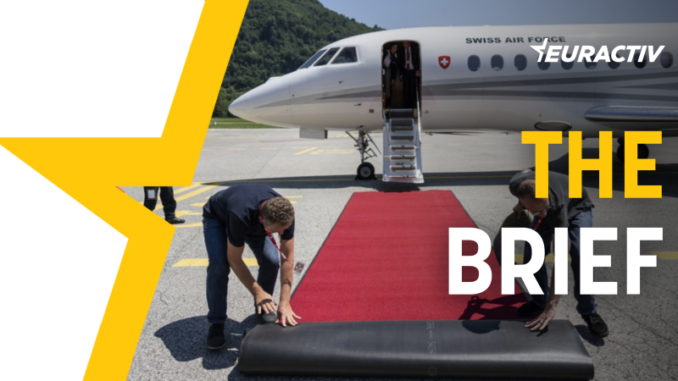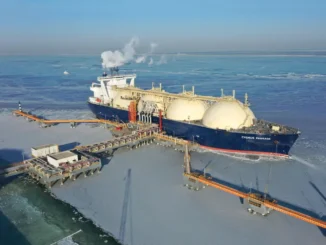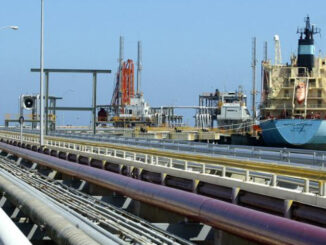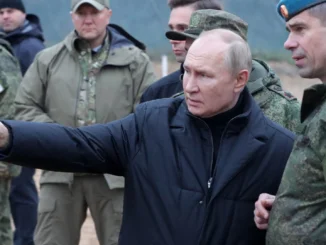
Is public opinion in EU countries pushing toward a settlement in Ukraine? A recent study provides food for thought — and suggests this might be the case.
As the war in Ukraine enters its third year, it is increasingly clear that the conflict will be determined not just on the battlefield but also in Western capitals, where decision-makers are sensitive to the national public opinion.
With Ukrainian forces short of ammunition and forced to retreat in some areas, Kyiv’s ability to repel Russia’s invasion depends heavily on Western military, financial, and political backing.
A bill stuck in the US Congress that includes some $60 billion in aid for Ukraine – much of it military – is vital for Kyiv’s forces. A decisive factor for the short term will be whether EU partners can catch up with Russia’s heated artillery production and supply Ukraine with the shells and barrels they need.
On the other side, Vladimir Putin is banking on the resources of his vast country and its allies, North Korea and Iran, but also war fatigue in the West to help achieve a Russian victory.
The study “Wars and elections: How European leaders can maintain public support for Ukraine” by ECFR, the European Council of Foreign Relations, reveals that public opinion in the 12 EU countries where polls were conducted seems to tilt toward a settlement, as a majority of Europeans seem pessimistic about Ukraine’s chances of winning the war.
However, expecting a settlement is not the same as preferring such an outcome in this war, the report’s authors, Ivan Krastev and Mark Leonard, point out.
Respondents in three countries – Poland, Portugal, and Sweden – clearly preferred supporting Ukraine’s efforts to take back its territory.
In five others, however – Austria, Greece, Hungary, Italy, and Romania – people tend to want their governments to push Kyiv to accept a settlement. Meanwhile, the public is more divided on this in France, Germany, the Netherlands, and Spain.
A particularly interesting country – and a very important one – is France.
Previously considered pro-Russian for historical reasons, it now has a larger number of respondents (35%) believing that Europe should support Ukraine in taking back the territories occupied by Russia, against 30% who say Europe should push Ukraine towards negotiating a peace deal with Russia.
This shift of opinion is in tune with the position of President Emmanuel Macron, who made groundbreaking statements at the Ukraine support summit in Paris.
Macron, once opposing any measures that might ‘humiliate’ Putin, now said France shared the view that Russia may attack NATO countries in Europe, and his country was no longer opposed to buying ammunition from outside the EU to support Kyiv (previously France was sticking to the ‘buy European’ policy).
But the opinion poll is hardly in tune with Macron’s other, more shocking, statement — that the option to send Western troops to Ukraine was on the table, although there was no consensus. The pollsters didn’t ask this question as it doesn’t seem a plausible option.
If troops from European NATO members are sent to Ukraine, this is more likely to happen in a post-settlement context as a guarantee that Russia does not attack again.
As the ECFR authors write, wars play out on the battlefield but often end at the ballot box: From the French campaign in Algeria to the US Vietnam war, it was a collapse in public support, as much as military setbacks, that pushed the participants to settle.
Ukraine will ultimately decide, but its current position that it should recover all its territory before sitting at the negotiating table is hardly tenable.
As Krastev wrote in a commentary for the Financial Times, if Moscow decides to use Putin’s re-election to kick-start a diplomatic offensive, European and American political leaders will face a public backlash if they insist that Ukraine and its allies will never talk to the Russian leader and will accept only the full liberation of all occupied territories.
Andriy Yermak, head of Ukraine’s presidential office, recently said that his country could invite representatives from Russia to a future peace summit – if a meeting of global leaders in Switzerland, requested by Ukraine and still without a set date, proves successful.
The announcement sounded unusual, given Kyiv’s previous “everything or nothing” positions and President Volodymyr Zelenskyy’s 10-point peace plan, and it might suggest a more nuanced approach from Kyiv.
Which keywords will prevail in the context of the war in Ukraine in the following months, “boots on the ground” or “settlement”?
Right now, the safer option seems more plausible.
ENB Top News
ENB
Energy Dashboard
ENB Podcast
ENB Substack



